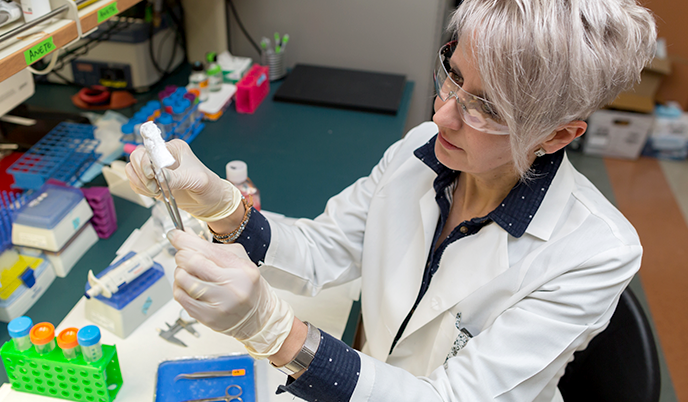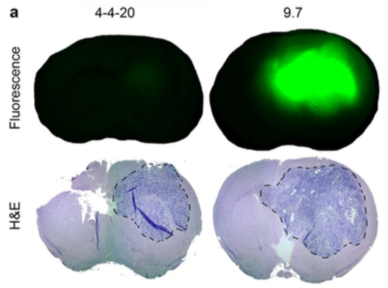
Marmoset stem cells carrying Parkinson’s mutation could lead to new model for studying disease
Parkinson’s disease researchers have used gene-editing tools to introduce the disorder’s most common genetic mutation into marmoset monkey stem cells and to successfully tamp down cellular chemistry that often goes awry in Parkinson’s patients.

Stem cells could help cancer patients fight dangerous infections
Scientists at the University of Wisconsin–Madison have developed a more efficient way to grow the white blood cells, which serve as front-line defenders against bacterial infections but are often depleted as a potentially deadly side effect of cancer treatment.

UW researchers use stem cells to develop vocal folds in a dish
Researchers at University of Wisconsin School of Medicine and Public Health have created an in vitro 3-D model of human vocal fold tissue (called mucosa) that could improve our understanding and treatment of disorders affecting the human voice.

Clinical prospects for stem cells begin to emerge
Twenty years after the University of Wisconsin–Madison’s James Thomson derived the first human embryonic stem cell lines (ESC), his revolutionary discovery is just beginning to emerge on the clinical landscape.

Blockages in nerve-cell protein ‘factory’ implicated in neurodegenerative disease
A molecular basis underlying the neurodegenerative condition hereditary spastic paraplegia (HSP) has been identified in a study by University of Wisconsin School of Medicine and Public Health researchers.

Report: Promising cell type represents new frontier for treating disease
A type of cell drawn from certain body tissues shows enormous potential to treat a range of diseases in the United States and Europe, but it must first receive federal approval as a regulated pharmaceutical.

Researchers discover effective way to generate powerful blood cells for immunotherapy
Scientists at the University of Wisconsin School of Medicine and Public Health have found a potentially improved method for creating T cells to treat cancer and infections.

UW researchers identify arterial hemogenic endothelial cells that can function as lymphoid precursors
Scientists at the University of Wisconsin School of Medicine and Public Health have used human stem cells to make blood-forming cells and demonstrated that they can function as lymphoid precursors, or the earliest cells from which various immune cells arise.

Researchers develop ways to identify potency of certain stem-cell treatments
Two new methods have been developed to test the health and potency of cells grown in a lab for use in some stem-cell treatments, which could lead to far more effective prediction of potency for clinical trials.

UW study uses ‘bio-panning’ to find human antibodies for brain cancer stem cells
Using a method described as similar to panning for gold, Carbone Cancer Center scientists discovered human antibodies for the cancer stem cells of glioblastoma, one of the most difficult brain cancers to treat.

Darcie Moore receives grant to study how brain cells age
A new grant of $100,000 will allow Dr. Darcie Moore to study how neural stem cells age, and how this can lead to cognitive decline and other maladies of old age.

Researchers discover how two gene enhancers control blood cell development
A group of researchers from the University of Wisconsin School of Medicine and Public Health (SMPH) has unearthed a critical process in how healthy red blood cells are produced.